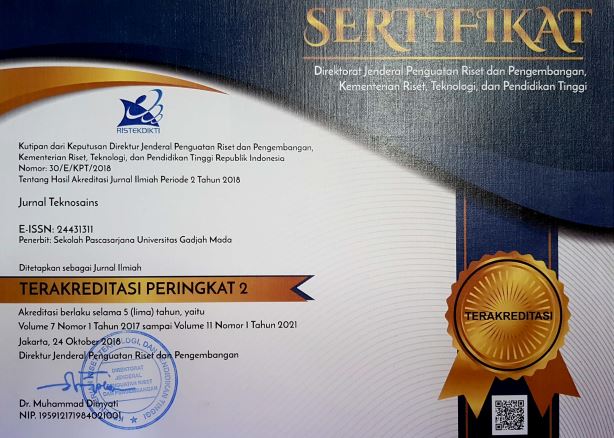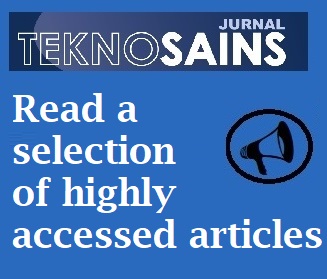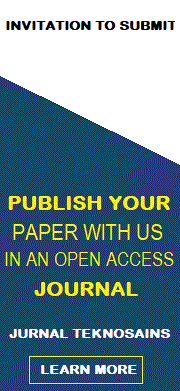PERAN ORANG TUA TERHADAP KETERAMPILAN MENYIKAT GIGI DAN MULUT PADA ANAK DISABILITAS INTELEKTUAL
Leny Pratiwi Arie Sandy(1*)
(1) Universitas Gadjah Mada, Yogyakarta
(*) Corresponding Author
Abstract
Intellectual disability is a group of children with impaired intellectual function below an average of 70 or lower. This group experienced problems in terms of self-development skills such as tooth brushing. Tooth brushing is an activity the mechanical removal of from food scraps, germs and plaque. Growing and developing independence of children with intellectual disability was influenced by the role of parents. Parents who have a role as basic of children behavior was contributed to process child growth. This study aims to determine the relationship of parental role to the tooth brushing skill in intellectual disability children.
This research method is analytic survey and used cross sectional design. Sampling technique using total sampling. The population in this research is intellectual disability children in SLB Pamardi Putra Banguntapan Bantul Yogyakarta as many as 30 people. The role of parent was measured using questionnaire and tooth brushing skills measured using check list (from Special Care Advocates in Dentistry (SAID) guidelines, 1995). Data analysis using Spearman correlation with significance level (0,05). The result of this research is p = 0.185 (> 0.05), it shows that there is no significant correlation between parent role to oral and brushing skills in intellectual disability children in SLB Pamardi Putra Banguntapan Yogyakarta.
Keywords
Full Text:
PDFReferences
DSM-5. 2012. Diagnostic And Statistical Manual Of Mental Disorders (DSM-5). Washington DC: American Psychiatric Association.
Selikowitz M. 2001. Mengenal Sindrom Down. Arcan : Jakarta.
Kay J, Tasman A. 2006. Essentials of psychiatry: Mental Retardation. West Sussex (England): John Wiley and Sons; p.285-93.
Kumar S, Sharma J, Duraiswamy P1, Kulkarni S. 2009. Determinants for Oral Hygiene and Periodontal Status Among Mentally Disabled Children and Adolescents. J Indian Soc Pedod Prevent Dent. Vol 27.
Loureiro A, Costa O, Da Costa E. 2007. The Impact of Periodontal Disease on The Quality of Life of Individuals with Down syndrome. Down Syndrome Research and Practice. Vol 12.
Smeltzer, Suzanne C. dan Bare, Brenda G. 2002. Buku Ajar Keperawatan Medikal Bedah Brunner dan Suddarth (Ed.8, Vol. 1,2), Alih bahasa oleh Agung Waluyo dkk. EGC. Jakarta.
Lumbantobing, S. M. 2008. Anak dengan Mental Terbelakang. Jakarta: Balai Penerbit Fakultas Kedokteran Universitas Indonesia.
Idris Z dan Jamal. L. 1992. Pengantar Pendidikan. Jakarta : Grasindo.
Notoatmodjo S. 2003. Pendidikan Dan Perilaku Kesehatan. Rineka Cipta. Jakarta.
Southern Association of Institutional Dentist. 1995. Preventive Dentistry for Persons with Severe Disabilities: In Self-Study Course. Module 11. 21-24.
Liando J dan Dapa A. 2007. Pendidikan Anak Berkebutuhan Khusus dalam Perspektif Sistem Sosial. Departemen Pendidikan Nasional. Direktorat Jenderal Pendidikan Tinggi Direktorat Ketenagaan. Jakarta.
Wiryadi SM. 2014. Pola Asuh Orang Tua dalam Upaya Pembentukan Kemandirian Anak Down Syndrome X Kelas D1C1 di SLB Negeri 2 Padang (Studi Kasus di SLB Negeri 2 Padang). Jurnal Ilmiah Pendidikan Khusus. Hal 737-746.
Harvey, J dan Delfabbro, P.H. 2004. Psychological Resilience in Disadvantaged Youth : Critical Overview. Australian Psychologist.39 (1), 3-13.
Prasodjo. T. 1976. Gangguan Psikiatrik pada Anak-Anak dengan Retardasi Mental. Disertasi. Surabaya : Universitas Airlangga.
Article Metrics
Refbacks
- There are currently no refbacks.
Copyright (c) 2018 Leny Pratiwi Arie Sandy

This work is licensed under a Creative Commons Attribution-ShareAlike 4.0 International License.
Copyright © 2024 Jurnal Teknosains Submit an Article Tracking Your Submission
Editorial Policies Publishing System Copyright Notice Site Map Journal History Visitor Statistics Abstracting & Indexing









